Harmful Effects of Junk Food: Health Hazards of Junk Food
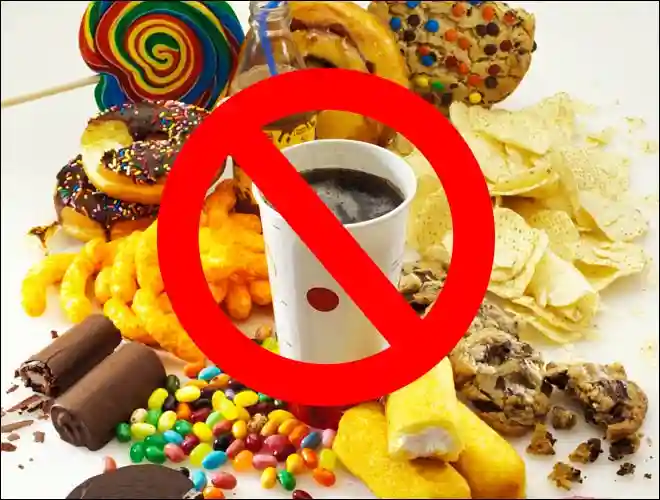
Good health is the necessity of living a healthy life for every one of us which needs to maintain a healthy diet and healthy habits throughout the life. However, the custom of eating junk food in many is increasing day by day and is going to be a health hazard especially for our future generations. Today, more than 95% of all chronic diseases are caused by food choice, toxic food ingredients, nutritional deficiencies and lack of physical exercise. This is perfectly true for most of the population across the world and it is also true especially for almost all school going children People of all age groups like to eat junk food and they generally chose to eat whenever they enjoy special time with family like birthday party, marriage anniversary, etc. They easily become used to of taking soft drinks, wafers, chips, noodles, burgers, pizza, French fries, Chinese dishes, and other varieties of fast food available in the market. Parents should be very conscious towards the eating habits of their kids and children because in the childhood they never know and decide their good or bad so it is parents who are fully responsible for the good or bad eating habits among their kids. They should train their kids about eating habits from childhood and make them clear about the differences between healthy and junk foods. 12 Harmful Effects of Junk Food Avoid eating junk food and go for balanced diet with all essential nutrients fibres and essentials to avoid health diseases and lead a better quality of life. For more information on healthy diet contact Wockhardt hospital. FAQs on Harmful Effects of Junk Food Q. What are the important harmful effects of junk food? Here are some harmful effects of junk food: Junk food contains a lot of calories, fat, and sugar, among other components that raise one’s calorie intake above what is necessary for metabolism, thereby resulting in obesity. So, consuming such foods increases the chances of contracting chronic disorders, such as diabetes and heart disease. Poor nutrition through junk food that lacks essential nutrients, may lower immunity and make a person more susceptible to diseases and infections. Chronic consumption of junk food has a negative impact on an individual’s mental health, slowing the cognitive ageing process and increasing rates of depression, as well as causing mood fluctuations. Cereals, fruit juices, and cereal-based ready-to-eat foods serve as rich sources of fibre, vitamins, and minerals, which are generally lacking in junk foods. A poor diet primarily composed of junk food not only leads to deficiency-related issues, but also results in the loss of these essential nutrients. Consumption of junk food is often bad for oral health, as it tends to be high in sugar and salts, along with a number of unhealthy fats. Q. What role do the harmful effects of junk food play in the development of type 2 diabetes? Junk food has a high trans and saturated fat content, which can increase blood triglyceride levels, a kind of fat. Type 2 diabetes is more likely to occur in those with high triglyceride levels. Q. How do I know if a food product is a junk food? Junk food is defined as food that is heavy in fats, sugar, or salt but low in nutrients like fibre, vitamins, and minerals. Fast food, convenience meals, sugary snacks, and other highly processed foods with lengthy shelf lives are sometimes categorized as junk food because of their comparatively low nutritional value and possible health hazards. Making informed food choices can be aided by carefully reading nutritional labels and referring to the Health Star Ratings system. Q. How do I make healthy food choices? Eat a balanced diet rich in fruits, vegetables, lean proteins, whole grains, and healthy fats, to fulfill your body’s nutritional requirements. Look out for ingredients, serving sizes, and nutrition information to avoid processed foods with added sugars, unhealthy fat, or sodium. Plan for healthy meals and snacks beforehand. Make sure you have a selection of colourful food on your plate so that it meets all the nutritional requirements; thus, staying fit. Q. Can I include a small amount of junk food in a healthy diet? One can incorporate a little quantity of junk food or discretionary items into a balanced, healthful diet. This implies that you should limit your intake of junk food to infrequent treats. Q. Does eating junk food cause health difficulty? Absolutely, because junk food contains a lot of harmful fats, carbohydrates, and additives, it may cause a number of health problems if consumed on a daily basis. Consuming junk food over time might cause type 2 diabetes, heart-related issues (such as high blood pressure, cholesterol, and cardiovascular disease), and obesity. Overindulging in junk food can lead to weakened immune systems, impaired cognitive function, and poor health in general.
Brain Tumor
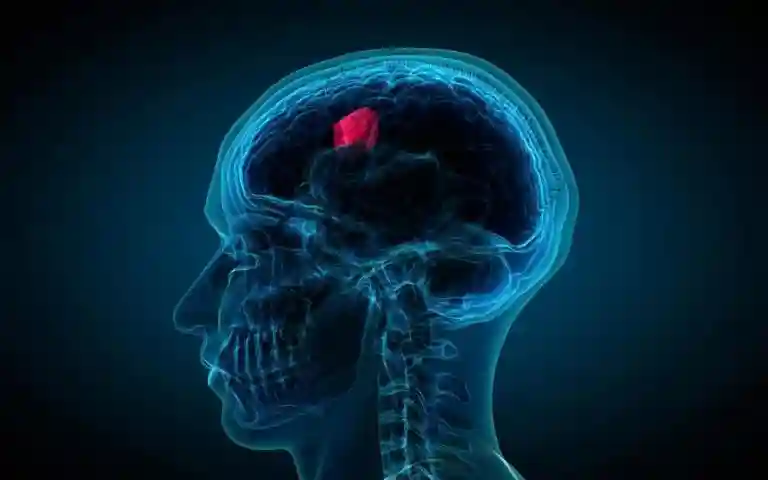
A brain tumor is a mass or growth of abnormal cells developing in the brain. They can be benign or malignant. The tumors can be primary brain tumors originating in the brain (Gliomas) itself or in tissues close to it, such as in the brain-covering membranes, cranial nerves, pituitary gland or pineal gland. Sometime tumor can be a secondary lesion from another cancer in the body and spreads to the brain ( Metastatic Brain Tumors) .Brain tumors can grow rapidly and affect well the function of your nervous system. Symptoms of brain tumor include: Diagnosis of brain tumors can generally be carried through a neurological examination. Diagnosis can be carries though CT scans, MRI, PET scan and through biopsies. These are generally advised by a neurologist or neurosurgeon. At Wockhardt Hospitals we provide advanced imaging support for diagnosis for further evaluation and treatment. The standard treatment for brain tumors includes surgery, radiation therapy, and/or chemotherapy. In general, radiation and chemotherapy treatments are used as secondary or adjuvant treatments for tumors that cannot be managed using only surgery. However, radiation and chemotherapy may be used without surgery if the tumor is inoperable. Neuro-Oncosurgery at Wockhardt Hospitals: Neuro-oncology is a sub-specialization that deals with brain tumors and spinal cord tumors. These tumors can be both benign (non-cancerous) or malignant (cancerous). Malignant tumors can be divided into primary – that arise from within the brain and spine and secondary tumors – that have spread to brain and spine from other body parts, known as metastatic tumors. All types of brain and spinal cord tumors may produce symptoms that vary depending on the part of the brain and spinal cord involved. With the advancement of technology (advanced microscopes, intraoperative navigation) and better investigation facilities, the morbidity and mortality associated with the brain and spine surgeries has drastically decreased in last two decades. Treatment of benign brain and spinal cord tumors is done by surgical excision, whereas, in case of malignant brain and spinal cord tumors, either chemotherapy or radiation therapy is required, in addition to surgery. Common benign tumors of brain are meningioma, acoustic neuroma, schwannoma and pituitary tumors. Pituitary tumors can be removed through nose with endoscope or microscope without opening the skull. Generally surgery is suggested for the following in case of brain tumors Need for surgery: Some surgical techniques include: Craniotomy: Cranioplasty surgery is the most common surgical procedure for excision of brain tumor. An area of the bone is cut out from the skull, the tumor is removed. The whole process is guided by MRI or CT scans either before the surgery or during the surgery. Neuroendoscopy: It also called keyhole brain surgery is done by making small opening in the brain with the aid of endoscope. Neuroendoscopy enables neurosurgeons to access areas of the brain that cannot be reached with traditional surgery and remove the tumor without cutting or harming other parts of the skull. The procedure is performed using an endoscope, a small telescope-like device equipped with a high-resolution video camera and eye piece on the end to allow the neurosurgeon to navigate and access the tumor. At Wockhardt Hospitals we have a dedicated team of neurosurgeons, medical oncologists, paediatric oncologists and radiation oncologist specialised in Neurooncolgy. The specialists also use latest operative advances with navigation, advanced surgery techniques and neurophysiology monitoring . For more information on brain tumors symptoms, diagnosis and treatment contact our neurosurgery department at Wockhardt hospitals.
Blood Donation: Safe Blood For All
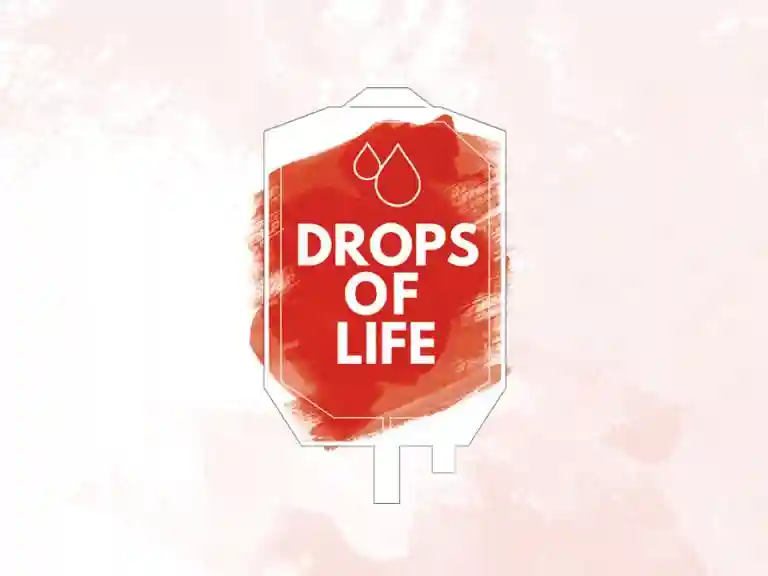
This year’s theme is to create an awareness of the need for regular blood donation. Its main objective is to ensure that all individuals and communities have access to affordable and timely supplies of safe and quality-assured blood and blood products, as an integral part of universal health coverage and a key component of effective health systems. Blood is an important resource, both for planned treatments and urgent interventions. It can help patients suffering from life-threatening conditions live longer and with a higher quality of life, and supports complex medical and surgical procedures. Blood is also vital for treating the wounded during emergencies of all kinds (natural disasters, accidents, armed conflicts, etc.) and has an essential, life-saving role after child birth. Unfortunately, as a result of lack of knowledge, there is a serious shortage of blood donors. On this World Blood Donor Day, observed on the 14th 2019 June every year let us all pledge to actively take part in blood donation drives. Some FAQ s by donors: Can a diabetic patient donate blood? If you take insulin, you are not eligible to donate. The rationale is that donating could interrupt the glucose control of the body, and potentially lead to a hypoglycaemic reaction in the clinic or on the way home. However, if you manage your diabetes with lifestyle or diabetes pills, you may be eligible, depending on your overall health. Ask your doctor about your eligibility. If I smoke can I donate blood? Smokers are indeed eligible to donate, but there are a variety of other eligibility guidelines for donation that may decide your eligibility. It’s best to consult a doctor. Note – After donating, it is recommended you avoid smoking for at least 3 hours and not consume alcohol for 24 hours. Is Donating blood painful? Among other important things to know about blood donation, this one is crucial. Giving blood does not hurt. There is a slight prick when they put in the needle, and then you don’t feel much of anything during the donation; maybe an odd feeling in your arm, where the needle is inserted. Immune system becomes weak when you donate blood. How long does the procedure take? All it takes is 45 minutes to one hour to donate. The donation procedure itself takes about 10 to 12 minutes. But it also takes time to fill out the donor registration form, conduct a mini-medical exam, and rest and enjoy refreshments following a donation. What are the criteria to be a donor? Who cannot donate blood? How much blood is collected per unit? Each individual can donate up to 350/450 ml. of blood. The body can replenish this volume within 24 to 36 hours. What should a donor eat and drink prior and after the donation? Drink some liquid like tea, coffee, a cold drink, juice, etc.to replenish fluid and eat some snacks. The donor can eating light snacks and a drink (non-alcoholic) before blood donation . What is the procedure for blood donation? Procedure is done in the blood bank using all aseptic precautions. Blood is collected in sterile disposable bags and needles are used to collect your blood. These disposable items are for one-time-use only. How does a donor benefit? What diseases are screened to ensure safe blood? All mandatory screening for the transfusion transmissible diseases like HIV1 and HIV2, HBV, HCV are done with the more sensitive and specific CMIA and ELISA method. All units are screened for VDRL and Malarial parasite. Before issuing blood, compatibility tests (cross-matching) is done before giving the recipient. How long is the unit of blood stored in the blood bank ? Whole blood can be stored for up to 35 days. The various blood components can be stored as under: Platelet Concentrate – 5 days Platelet Aphaeresis – 5 days Packed Cells – 42 days Fresh Frozen Plasma – 1 year Cryo Antihaemophilic Factor – 1 year For further queries and information on voluntary blood donations please contact our blood bank at Wockhardt Hospitals.
Paediatric heart surgery cures a 9 year old boy’s birth heart defect

Tejas Ahire weighed 15kg, at the age of 1 and was diagnosed with congenital heart defect. He was a blue baby complaining of breathlessness and no weight gain. Through a camp, Dr. Suresh Joshi and team came to know about Tejas’ condition. After evaluation, doctors revealed that Tejas presented with a heart condition called transposition of the great arteries, which occurs during foetal growth when the baby’s heart is developing. This birth defect is unknown, in most cases. This condition is a rare heart defect present during birth (congenital), in which the two main arteries leaving the heart are reversed (transposed). Heart surgery is needed to correct the condition. Transposition of the great arteries changes the way blood circulates through one’s body, leaving a shortage of oxygen in blood flowing from the heart to the rest of the body. Without an adequate supply of oxygen-rich blood, the body can’t function properly and the child faces serious complications. Furthermore the defect is accompanied with a condition called Ventricular Septal Defect (VSD), which is a hole in the wall separating the two lower chambers. It was also observed that the blood flow to his lungs was decreased. Under the experienced hands of the Paediatric Cardiac Surgery India team at Wockhardt Hospital Mumbai Central, led by Dr. Suresh Joshi, Consultant Pediatric Cardiac Surgeon, and Dr. Manish Chokhandre, Interventional Paediatric Cardiologist, the surgery was effectively carried out. Dr. Suresh Joshi, Consultant Paediatric Cardiac Surgeon, Wockhardt Hospital, Mumbai Central, said “When it comes to Tejas, in the first stage known as Glenn shunt surgery, we added a tube carrying blood from the lower body to the pulmonary artery, but the communication was closed using a membrane. The connection is made into the tube so that the deoxygenated blood gets directed to heart only, thereby avoiding sudden flooding of lungs and providing a platform to finish the second stage in Cath lab without the need for surgery.” Six months later in the month of February 2019, the completion of the Fontan, the second stage procedure, was carried out in a Cath lab by Dr. Manish Chokhandre, interventional paediatric cardiologist, who perforated the membrane between the tube and pulmonary artery, and balloon dilated the communication and closed the other holes (which was directing blood to the heart). The device provided a pathway that the de-oxygenated blood from the lower half of the body easily gets directed to the lungs. According to Dr. Manish Chokhandre, Pediatric Cardiologist, Wockhardt Hospital, Mumbai Central there are no such published cases in literature from India and very few centres from abroad are performing this kind of surgery. This procedure has many benefits. Firstly there is no need for opening the chest surgically. Thereby a patient can have an early recovery, reduced hospital stay, fewer complications, and no post-procedure pain. This definitely makes the procedure cost effective. Wockhardt Paediatric and Congenital Heart Defect Centre is one of a kind in Mumbai. It boasts an experienced panel of paediatric surgeons, cardiologist, intensivists, and anaesthetists, per fusionists and trained nurses as well as technologists who as a team deliver the best care to children with congenital heart diseases. Paediatric cardiac surgery in children are indicated to repair heart defects a child is born with CHD (congenital heart defects) and heart diseases a child gets after birth. Cardiac defects are grossly divided into acyanotic and cyanotic heart diseases, former being more common. Paediatric cardiac surgery is needed for the child’s wellbeing is carried out by highly specialised and reputed paediatric cardiac surgeons of Wockhardt Hospital. The department has played a pioneering role in both on and off pump cardiac neonatal surgeries as well as complex congenital heart surgeries and repeat open heart surgeries. Our state of the art Cardiac Catheterisation and Interventional Cardiology facilities assist our expert paediatric cardiologists in dealing with closure of ASD, VSD, PDA etc. and other congenital heart surgeries .A full-fledged PICU which is under the guidance of protocol and evidence based management and is under the constant care of Consultant Paediatric cardiac care team. The department is also supported in Imaging devices such as Foetal Echocardiography ,Advanced 3-d Echocardiography and 2-d portable echocardiography for precise diagnosis of congenital heart defects in new born and children . For any further information and treatment on birth defects in the heart please, visit our paediatric cardiology department at Wockhardt Hospital, Mumbai Central.
Boost your Immunity this Summer with Healthy Diet Tips

Doctors say that something as simple as eating more fruits and vegetables can increase your immunity. “Including nutrient-rich foods, getting exercise and being mindful of hygiene practices can do a lot of good to your immune system and, thus, prevent infectious diseases during the summer months” Some diseases are more prominent in certain seasons than others. While winter brings a slew of diseases like cold and cough, with summer comes a host of health problems like headache, flu, gastrointestinal diseases, and jaundice and skin rashes. The immune system is the most important factor in the body to avoid any kind of disease. Change in weather during summer leads to a shift in temperature that leads to the growth of certain viruses and bacteria. Your immune system gets low during stress s, poor diet, inadequate sleep, obesity, lack of physical activity and neglecting protein-rich food. Here are some other diet tips to stay healthy this summer: Other items include nuts, dairy products, sprouts and fish. For more information on your diet and immunity tips please contact Wockhardt Hospital.
Quick intervention of Peripheral Artery Disease – saved 65yr old patient
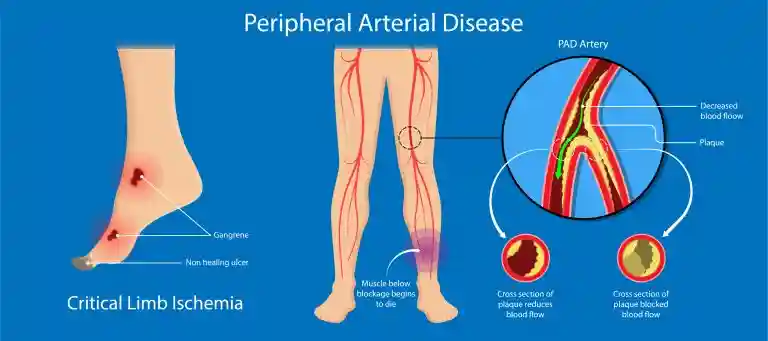
Peripheral artery disease (PAD) primarily occurs, due to decreased blood flow to the limbs caused by a blocked artery. This can result in arm fatigue, pain, and weakness, particularly with use. Peripheral Artery Disease is most commonly associated with the legs and feet, although it does include conditions caused by the blockage of blood flow in the blood vessels of both the arms and hands. A 65-year-old patient, who was suffering from upper limb artery blockage in the right arm, came to the Wockhardt hospital, Mumbai Central, with symptoms of numbness and bluish discoloration in his right arm. The patient was also suffering from from diabetes and was on kidney dialysis, post-bypass surgery with multiple health problems. At Wockhardt Hospital Mumbai Central, he was advised colour Doppler and an angiography, to assess his circulation status in his arm. It was, diagnosed that there was severe blockage of the arteries in his hand and blood supply was cut off causing the numbness and discolouration. Arm artery disease is a circulatory disorder where arteries in the arm are blocked or narrowed, unable to carry oxygen-rich blood into the arms. It is caused due to several factors such as high blood cholesterol sedentary lifestyle, diabetes, high BP tobacco and much more. As the disease, develops one may experience bluish discoloration skin. These symptoms are caused by the narrowed arteries inability to supply the necessary oxygen to the muscles. This condition can lead to increased risk of amputation, heart attack, and stroke. Dr. Ravi Gupta, Cardiologist and team at , Wockhardt Hospitals, Mumbai Central with their clinical expertise and quick intervention, performed a limb saving procedure and restored the circulation in the patient’s arm. Dr Gupta revealed “We used hard wires and balloon to open an artery so blood flow started in the palm. In this procedure, it was important to save not only limb but also AV Fistula which is necessary for his regular dialysis.” For information on treatment and management of peripheral arterial disease please visit our vascular surgery department at Wockhardt Hospital.
MICS – Cardiac Care of Zambian Patient
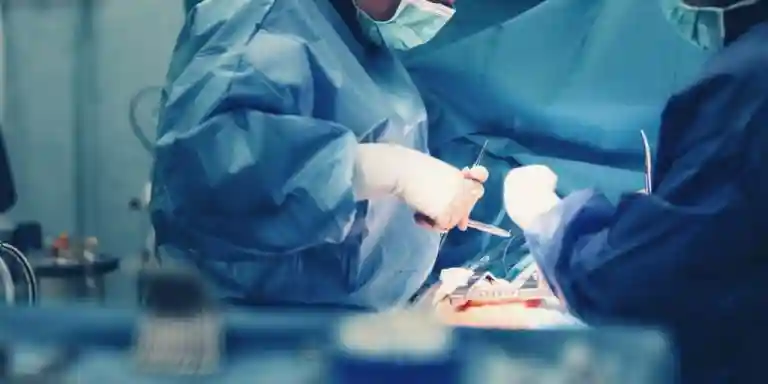
Wockhardt shares a successful story of Vivian Mulenga, her journey at Wockhardt Hospitals, Mumbai central Cardiac care centre during the course of her treatment. She was suffering from complicated heart condition and underwent an aortic valve repair surgery. My name is Vivian Mulenga. I am from Ndola Zambia. I was suffering from a heart condition for the past one year. My symptoms started with coughing, asthmatic attacks, acidity, flatulence and breathlessness. I could not even speak for a long period of time without getting breathiness and not lift my hands. The treatment I received from the hospital in Zambia was inadequate and my condition did not improve. I was given pain killers for relieving my pain but the doctors were not able to diagnose my heart condition. A friend of mine tagged me on Facebook and suggested that I visit Wockhardt Hospitals, Mumbai central. She suggested that it’s one of the best hospitals for cardiac care, having renowned, experienced cardiologists and a fully-fledged cardiology department. The hospital provides the best of cardiac care to international patients. The cardiac services are advanced and supported with the latest technology in cardiac surgery. So, after I carried out some cardiac investigation here in Zambia I was advised by a doctor. From, the day I arrived, I was treated so warmly and I felt right at home. The international patient coordinator took care of all my needs right from the airport pick up, to my admission procedures at the hospital. The process was extremely efficient. The cardiologist at the hospital, assessed my case. I was very impressed with his thorough explanation and he discussed all the pros and cons of my case and the procedure. The doctor extended complete support throughout my stay and was always available for feedback on my progress. After the surgery I feel like a different person. All my symptoms seem to have disappeared and I am able to live a better quality of life. I feel less tired and I have a new zest for life. I would like to thank the hospital for my treatment.
World Liver Day: 19 April, 2024
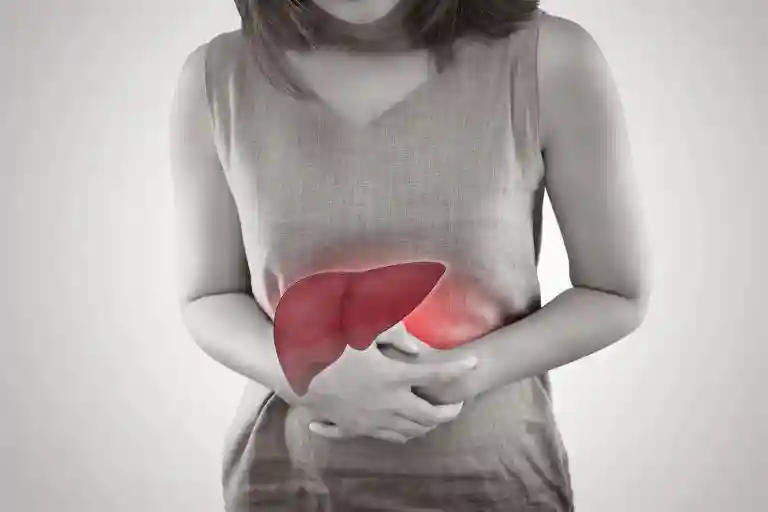
To build awareness and understanding importance of liver in human body and how liver ailments can be treated. Hepatitis is a general term referring to inflammation of the liver. It may result from various causes, due to viral, bacterial, fungal, and parasitic organisms. Non-infectious causes could be due to alcohol, poisonous substances, and autoimmune hepatitis. Viral hepatitis is one of the major causes of liver disease. Viruses that primarily attack the liver are called hepatitis viruses. There are several types of hepatitis viruses including types A, B, C, D, E, and possibly G. Types A, B, and C are the most common. All hepatitis viruses can cause acute hepatitis and liver disease. Causative Agents of Hepatitis: • Hepatitis A: Is transmitted through consuming food or water, contaminated by faeces from a person infected with hepatitis A. • Hepatitis B: Is transmitted through contact with infectious body fluids, such as blood, vaginal secretions, or semen, containing the hepatitis B virus. • Hepatitis C: is transmitted through direct contact with infected body fluids, typically through injection drug use and sexual contact. • Hepatitis D: also called delta hepatitis, hepatitis D is a serious liver disease caused by the hepatitis D virus (HDV). HDV is contracted through direct contact with infected blood. • Hepatitis E: a waterborne disease caused by the hepatitis E virus (HEV). Hepatitis E is mainly found in areas with poor sanitation and typically results from ingesting faecal matter contaminated with virus. Signs and Symptoms of Hepatitis: • Fatigue • Flu-like symptoms • Dark urine • Pale stool • Abdominal pain • Loss of appetite • Unexplained weight loss • Yellow skin and eyes, which may be signs of jaundice Diagnosis of Tests to Detect Hepatitis: • Physical Examination and clinical evaluation of patient • Liver function tests • Abnormal Ultrasound • Liver biopsy Treatment of Hepatitis: Measures to Prevent Hepatitis Prevention of diseases through vaccination of Hepatitis A and B: The hepatitis A vaccine is available to prevent this infection. Most children begin vaccination between ages 12 and 18 months. • Vaccination is recommended for all children age 12 months or older, for travellers to certain countries, and for people at high risk for infection with the virus. The vaccine is given as two shots, six months apart. • It’s a series of two vaccines. Vaccination is also available for adults and can be combined with the hepatitis B vaccine. The vaccine confers long-term protection against clinical illness and chronic hepatitis B virus infection. Hepatitis Vaccination A The CDC recommends that all children between ages 12 months and 23 months get this vaccine. The following people are also at risk for the disease and should be vaccinated: • Anyone who uses illegal drugs • People with chronic (long-term) liver disease • Anyone treated with blood clotting drugs, such as people with haemophilia • People who work with HAV-infected primates or in HAV research laboratories. (HAV is like HIV in animals.) • Travelers to countries where hepatitis A is common. • Countries susceptible to gastrointestinal disease In case you are experiencing any signs and symptoms of liver disease, please visit Wockhardt Hospital. We are a premiere hospital in the country specializing in the treatment of digestive disorders. We provide comprehensive digestive care to our patients. The digestive care centre at Wockhardt Hospitals makes it a centre for excellence with our clinical expertise, to treat such conditions affecting the digestive system. For further information or any gastroenterology services or liver transplant related query visit our experts at Wockhardt Hospital. Hepatitis Vaccination B The CDC recommends it for all babies, who should get their first dose as new-borns. • Anyone who has a sexual contact with a partner with hepatitis B • Anyone being evaluated or treated for an STD • Men who have sex with men • People who share needles used to inject drugs • Anyone who lives with someone who has hep B • People with end-stage kidney (renal) disease • Medical workers • Travelers to regions with moderate to high rates of hepatitis B • People with chronic liver disease • People with HIV infections
Advanced Technique in cardiac surgery improves Myocardial Infarct patient
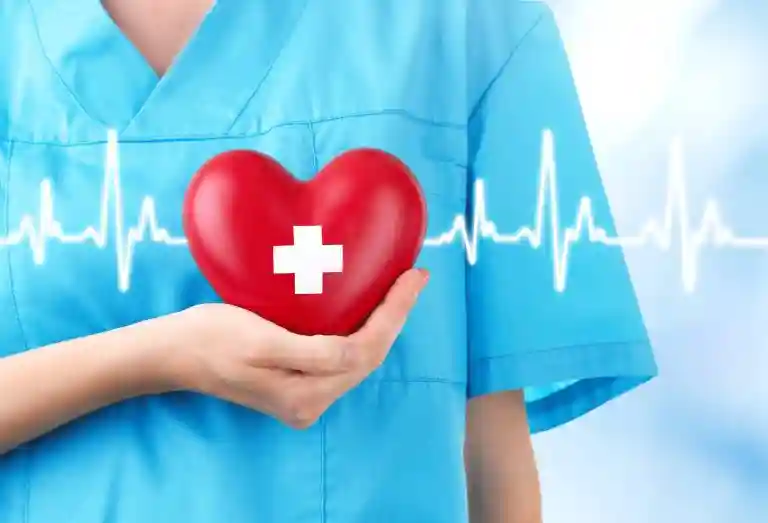
Myocardial Infarct (MI) or heart attack causes three major types of mechanical complications that mostly result in death of the patient, if not corrected in time surgically. One of the most major complications and increase in mortality occurs in ventricular septal rupture cases. A few years back, the mortality rate with surgical intervention to repair this was as high has 70-80% but it has now decreased to 50% or less thanks to double patch repair technique or Myocardial Infarct Exclusion Technique. In fact, even in countries like USA, death with VSR repair is 50%. Most doctors there don’t even take such patients for surgery. Wockhardt Hospitals, Nagpur, has kept pace with the developments in cardiac surgery in India and ICU facilities. Dr Saurabh Varshney, a young cardiac surgeon of city, has done five cases of VSR repair (all above 60 years of age) in different hospitals using the new technique of double patch repair technique in the last one year. Four of his patients have survived major heart attacks and are on regular follow up. This technique (of Japanese origin) involves recreating the wall that separates the right and left ventricle using an artificial material called Dacron. The main skill of surgeon lies in suturing the wall with heart muscles. Due to Myocardial Infarct, these muscles tear and are difficult to suture. In earlier practices only one Dacron patch was used. With, the new technique of using two patches on the walls between the two chambers in the heart, the survival rate of the patient has increased drastically. Dr K Jayaprasanna, cardiac surgeon at Wockhardt Hospitals, also said in as an emergency surgery this technique had only 50% survival rate. It worked better in haemodynamically stable patients and patients without any associated complications. “There are three types of ruptures— the mid-muscular rupture, the apical rupture and the inferior valve rupture. Results are best in apical rupture while chances of survival are 50% in mid-muscular rupture and minimum in inferior valve rupture as the right ventricle is badly deranged in this condition. Suturing is very difficult in VSR. The sutures break up very fast. It requires extremely skilled hand to do this surgery,” he said. It is important to understand the condition of the patient as well as the renal status of the patient to undergo this procedure. Wockhardt Hospitals Nagpur Cardiac Services: The Wockhardt Hospitals Nagpur is a premium cardiac centre providing state-of-the-art cardiac care to heart patients to lead longer, healthier lives keeping in with brand….Life Wins. The hospital is a 50 bedded fully equipped heart care centre with 10 bedded ICU and 8 CICU to treat and manage critical cardiac patients on emergency basis or post operatively and 3 tier patient management protocols. It has a Hi tech fully emergency medically equipped and ambulance services. At Nagpur we have created a the niche paradigm of specialised procedures in Interventional Cardiology ,Non-invasive cardiology, Cardiothoracic Surgery & Cardiovascular Surgery and Paediatric surgeries to name a few. Being a premium cardiac hospital it is fully integrated to perform cardiac surgery and catheterisation procedures. The centre is proud of its successful cases in cardiovascular surgeries namely angioplasty and angiography, valvular replacement procedures, pacemaker implants and open heart surgery and paediatric surgeries.
Skin Care in Summer Season

Summers heat can affect your skin and bring about changes. It’s necessary for you to gear up and take necessary preventive measures for your skin care during this time. As the temperature changes, we need to change our summer care routine to make sure that the skin stays young and fresh. If we tend to get lazy during summers and do not follow a proper skin regimen, the effects of this season tend to stay with us for a long time. Prickly heat, body odour and fungal infections, acne breakouts, on the face and body and hyperpigmentation can make the skin appear dark, and exposure to sun without protection can cause skin cancers and permanent damage to the skin. Some basic changes in daily routine and a diligent use of the right sunscreen is all it takes to sail through the season. Dr Madhulika Mhatre, dermatologist at Wockhardt Hospitals, suggests the skincare regimen according to skin types: Oily Skin Type Dry Skin Type If you have Combination Skin: Other summer care regimens for taking care of you skin should be followed: For any further information and treatment on various skin disorders please visit our dermatology department at Wockhardt Hospitals. Wockhardt Hospitals, a pioneer in skin treatment in India, offers high quality dermatology treatment. We have a team of highly educated and experienced dermatologists that evaluate and treat a variety of simple and complex skin disorders with latest innovative techniques and modalities.














